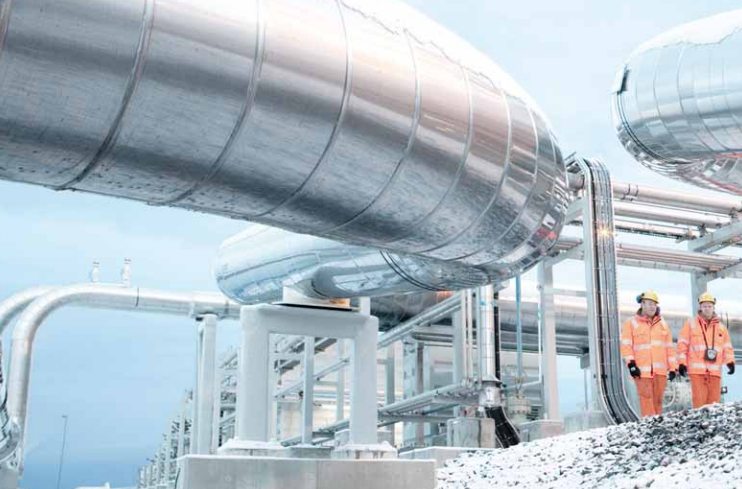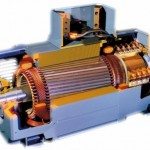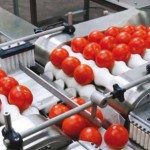ABB Energy Management Systems
Today industry and commerce are facing an energy challenge. Pressures to reduce energy consumption, lower carbon dioxide emissions and provide secure power supplies are coming from governments, consumers, legislators and shareholders alike. All of these pressures are against a background of ever-rising energy prices and the dramatic effects climate change ishaving on the environment. As a result, industry and their consumers are demanding ever more energy-efficient products.
The worlds demand for energy is rising steadily. Under current policies, energy demand is set to rise 47 percent between 2008 and 2035, according to the International Energy Agency (IEA), reflecting global economic growth and rising living standards. Electricity demand is expected to grow almost twice as fast, with most of the increase occurring in emerging markets.Helping industries and utilities improve energy efficiency Industry consumes about 42 percent of all electricity generated, according to the IEA. The most energy-intensive industries are cement, chemical, iron and steel.
The energy saving potential in industries and utilities is enormous just in electric motor-driven applications alone: hundreds of millions of electric motors driving machines, compressors, fans, pumps or conveyors in virtually every sector account for about 70 percent of all the electricity that industry uses.More than 90 percent of industrial motors either cannot adjust their power consumption or use very crude methods to do so. Many of these electric motors always run at full speed, regardless of the actual output needed. In many applications, energy use can be cut to one- eighth just by reducing the motor speed by half.
ABB Energy Management Systems Solutions
The most immediate, cost-effective and practical way to address the energy challenge is to grasp the opportunities for energy reduction that come from using energy more efficiently with available and proven technology.ABBenergy management systems include variable frequency drives, motors and other technologies tohelp lower energy use, either by reducing power consumption and losses, improving productivity or through better management of equipment.
With ABB energy management systems there is great potential to save energy and costs in industry. Nearly 70 percent of all electrical energy consumed by industry is used by the millions of electrical motors installed worldwide. Every year, several more million motors are added. These motors are the workhorses of industry, driving machines, compressors, fans, pumps and conveyors in virtually all industrial sectors. Not only are pumps andfans numerous, they also have the greatest energy saving potential. Therefore, targeting pump and fan applications is a great way to begin with ABB energy management systems.
ABB supplies virtually every industry with a broad range of electric motors and variable frequency drives to reduce energy consumption, increase productivity and safeguard quality. Among the industries served are cement, minerals, metals, oil and gas, chemicals, pharmaceuticals, pulp and paper, water, and marine.
During the 40 years since the first variable frequency drives appeared, ABB has delivered millions of units across the globe to every type of application in all industries. During this time, vast experience has been gained of how industry can save energy in the most effective ways. The installed base of ABB drives saved 310 million megawatt-hours (MWh) in 2011, equivalent to the yearly consumption of about 75 million EU households. In terms of CO2 reduction, these savings equate to 260 million tons, more than the yearly emissions of over65 million cars.
ABB energy management systems use variable frequency drives to reduce the output of an application, such as a pump or a fan, by controlling the speed of the motor, ensuring it runs no faster than it needs. Many motors are oversized to cope with a maximum demand that rarely or never occurs. The drive brings the motor speed down to match the actual demand needed by the application.This often cuts energy consumption by 50 percent and in extreme cases by as much as 90 percent.
When other control methods are used, such as dampers, vanes or valves, the motor runs at full speed and the flow of the output is mechanically restricted. For instance, the flow through a pipeline may be reduced by a valve. This is wasteful, because the motor keeps running at its nominal speed regardless of the demand. The pump delivers maximum output and the excess is reduced at the valve, where the surplus energy is wasted through friction.The relationship between a pump or fans speed and its energy need is known as the cube law, because the demand for power increases with the cube of the speed. This means that a small increase in speed requires a lot more power,but also that a modest speed reduction can give significant energy savings. A pump or a fan running at half speed consumes only one-eighth of the power compared to one running at full speed.
In addition to the energy savings, the variable frequency drive delivers accurate control and less mechanical wear, reducing maintenance and extending the life expectancy of the system. ABB energy management systems products range from 0.18 kW to 72 MW, is the widest available from any manufacturer, offering drives for every need.Many of ABBs drives have built-in energy calculators to monitor energy consumption and savings in kilowatt hours, local currencies and carbon dioxide reductions. The drives built-in energy calculators show actual results that can be used as a basis for future energy saving projects.
To learn more about ABB energy management systems, or for ABB repair, retrofit, and replacement quotes, contact Precision Electric, Inc.








